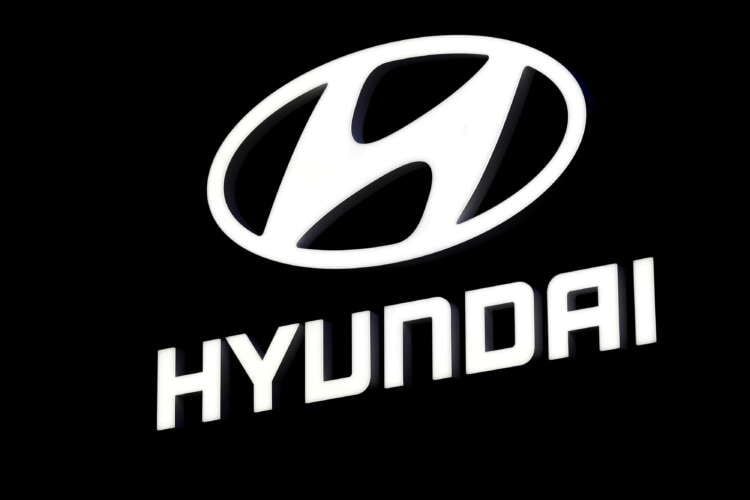Published by maria gbaf
Posted on August 5, 2021

Global Banking and Finance Review is an online platform offering news, analysis, and opinion on the latest trends, developments, and innovations in the banking and finance industry worldwide. The platform covers a diverse range of topics, including banking, insurance, investment, wealth management, fintech, and regulatory issues. The website publishes news, press releases, opinion and advertorials on various financial organizations, products and services which are commissioned from various Companies, Organizations, PR agencies, Bloggers etc. These commissioned articles are commercial in nature. This is not to be considered as financial advice and should be considered only for information purposes. It does not reflect the views or opinion of our website and is not to be considered an endorsement or a recommendation. We cannot guarantee the accuracy or applicability of any information provided with respect to your individual or personal circumstances. Please seek Professional advice from a qualified professional before making any financial decisions. We link to various third-party websites, affiliate sales networks, and to our advertising partners websites. When you view or click on certain links available on our articles, our partners may compensate us for displaying the content to you or make a purchase or fill a form. This will not incur any additional charges to you. To make things simpler for you to identity or distinguish advertised or sponsored articles or links, you may consider all articles or links hosted on our site as a commercial article placement. We will not be responsible for any loss you may suffer as a result of any omission or inaccuracy on the website.
Published by maria gbaf
Posted on August 5, 2021

By Vera Eckert
FRANKFURT (Reuters) – Hyundai Motor Co will invest in Germany’s H2 Mobility network of hydrogen fuelling station operators, it said on Thursday, as it looks to support infrastructure for fuel cell-powered vehicles.
A partner in the project since 2017, Hyundai Motor’s German subsidiary will become a seventh shareholder shortly, it said, having received approval from Germany’s cartel office.
The South Korean company did not disclose financial details.
It joins investors including France’s Total, Shell, OMV, industrial gas makers Linde and Air Liquide, and carmaker Daimler.
“In Germany, a lot of money is flowing into the topic of hydrogen through the European Union Green Deal and national funding, and we believe that we are at the forefront,” said Ronald Grasman, vice president of fuel cell business development at Hyundai Motor Company.
Fuel cell cars are far from mass market production.
But Hyundai, which is introducing fuel cell trucks in Switzerland, believes hydrogen technology could also play a bigger role in small vehicles further down the road.
H2 Mobility operates 91 hydrogen filling stations and is expanding.
H2 Mobility Managing Director Nikolas Iwan said the group was looking for anchor customers to bring big volumes to the stations, hoping this will allow them to reach break even within two to three years.
“This is why Hyundai is so important. They have the lead when it comes to scaling effects, especially in the area of commercial vehicles,” he said.
Hyundai, the biggest-selling Asian carmaker in Germany, had a 3.7% share of the market in January-July 2021 supplying a mix of conventional, electric and fuel-cell vehicles.
(Reporting by Vera Eckert, editing by Jason Neely)
By Vera Eckert
FRANKFURT (Reuters) – Hyundai Motor Co will invest in Germany’s H2 Mobility network of hydrogen fuelling station operators, it said on Thursday, as it looks to support infrastructure for fuel cell-powered vehicles.
A partner in the project since 2017, Hyundai Motor’s German subsidiary will become a seventh shareholder shortly, it said, having received approval from Germany’s cartel office.
The South Korean company did not disclose financial details.
It joins investors including France’s Total, Shell, OMV, industrial gas makers Linde and Air Liquide, and carmaker Daimler.
“In Germany, a lot of money is flowing into the topic of hydrogen through the European Union Green Deal and national funding, and we believe that we are at the forefront,” said Ronald Grasman, vice president of fuel cell business development at Hyundai Motor Company.
Fuel cell cars are far from mass market production.
But Hyundai, which is introducing fuel cell trucks in Switzerland, believes hydrogen technology could also play a bigger role in small vehicles further down the road.
H2 Mobility operates 91 hydrogen filling stations and is expanding.
H2 Mobility Managing Director Nikolas Iwan said the group was looking for anchor customers to bring big volumes to the stations, hoping this will allow them to reach break even within two to three years.
“This is why Hyundai is so important. They have the lead when it comes to scaling effects, especially in the area of commercial vehicles,” he said.
Hyundai, the biggest-selling Asian carmaker in Germany, had a 3.7% share of the market in January-July 2021 supplying a mix of conventional, electric and fuel-cell vehicles.
(Reporting by Vera Eckert, editing by Jason Neely)